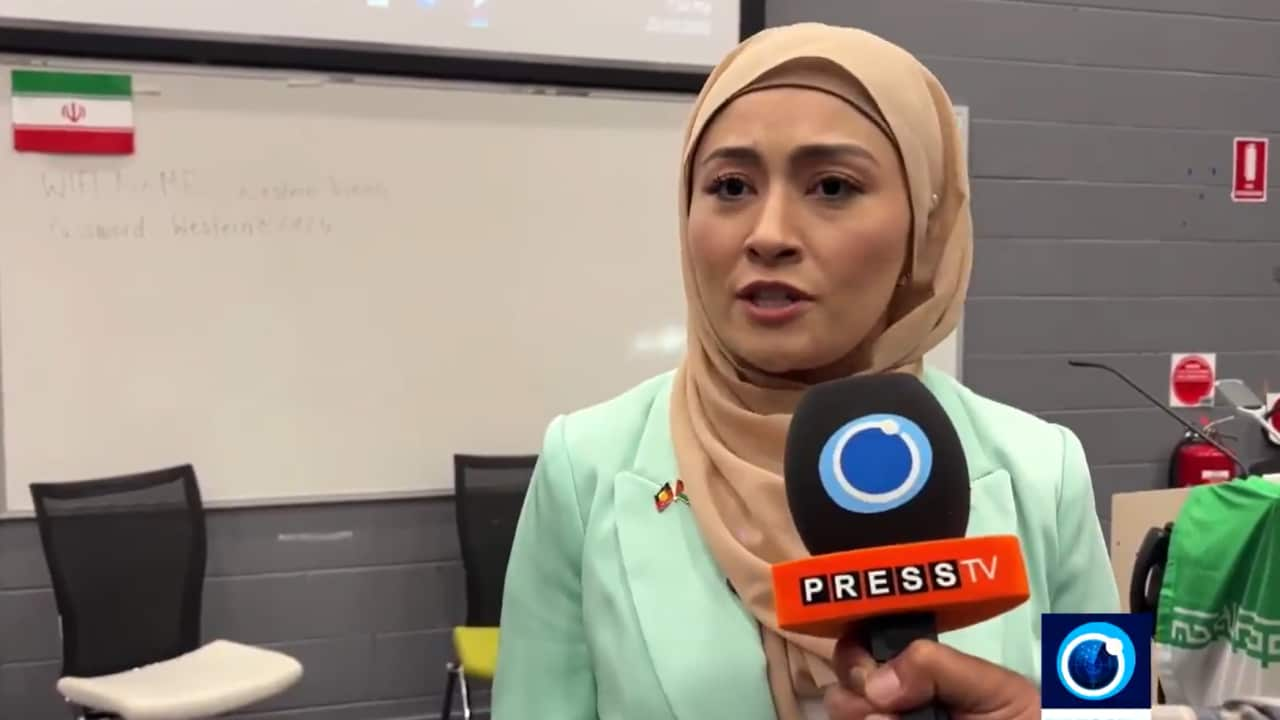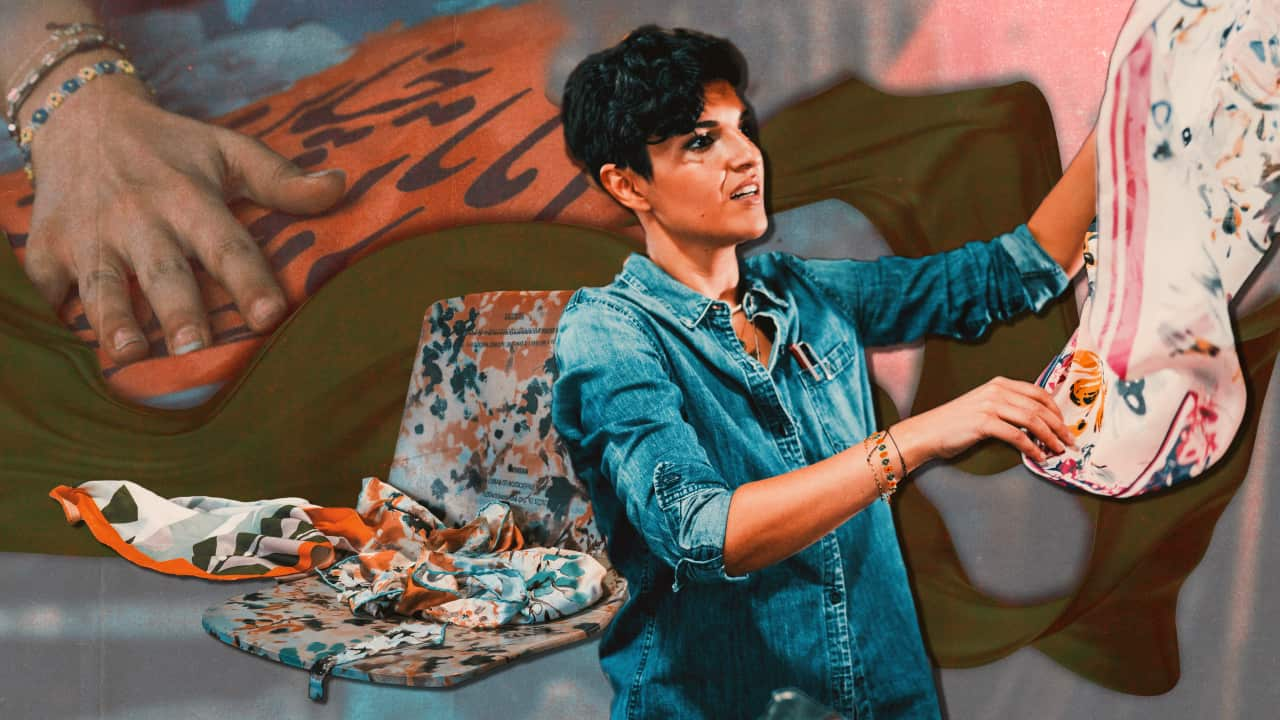Key Points
- Independent senator Fatima Payman has said that Westerners were not aware of the rights that Iranian women enjoyed.
- The comments have attracted criticism from community groups and experts in Iranian politics.
- Payman has said: "As a leader, it's important for me to keep an open mind and listen to both sides."
Independent senator Fatima Payman has defended her appearance at an event organisers described as "challenging the narrative of Iranian women in the West", at which she made a set of controversial comments.
In a broadcast from Iranian state-owned news media Press TV, Payman is quoted as saying Westerners are not exposed to the "incredible place that Iran is, allowing for women to participate in the workforce, to ensure that they have a voice, and their voices are heard, they're involved in the democratic process".
The former Labor Party member said these were "realities that we're not privy to living here and listening to the propaganda we receive from very single-sided organisations with a specific agenda".
The statement — made at an event on 22 February at Western Sydney University — quickly attracted backlash from Australian United Solidarity for Iran (AUSIRAN), a community group supporting the Woman, Life, Freedom movement in Iran.
In a letter titled No Cover for Islamic Republic's Regime Gender Apartheid, AUSIRAN said it was "outraged" by the statements of Payman and NSW Women's Minister for Women Jodie Harrison, who sent a video message that was played at the event.
The minister has since apologised for her participation and said she does not share the views expressed by panellists at the event.
"Their decision to attend an event in Sydney — which flagrantly supported the Islamic Republic regime's misrepresentation of women's rights and its propaganda — is a profound act of hypocrisy," the letter read.
"For decades, the regime has silenced Iranian people's voices, a cruelty most recently revealed during the uprising following the tragic death of Mahsa Jina Amini, a woman whose life was unjustly taken by police violence."
Amini was a woman from Iran's Kurdish minority for allegedly not observing the country's .
Iranian authorities claim she suffered from an underlying health condition, but eyewitnesses say she was beaten inside the police van.
In reaction to her death, thousands of protesters took to the streets in cities all over Iran for months, chanting "Woman, Life Freedom" and calling for regime change.
The protests were met with a "brutal government crackdown that resulted in hundreds of deaths and tens of thousands of arbitrary arrests," according to Human Rights Watch.
Kylie Moore-Gilbert — an Australian expert in Middle Eastern political science — also criticised Payman's comments.
"Oh my God girl what are you doing!? What is this nonsense you are saying!?" she wrote on X.
"Iran has no 'democratic process,' least of all one which women are allowed to participate in. You should know this — I saw you sitting in the Senate enquiry into Iran's human rights abuses just 2 years ago.
"Why agree to be interviewed by Press TV, English language propaganda arm of the Islamic Republic known for broadcasting false confession videos and forced interviews with prisoners before they are executed?"
Payman, event organisers respond
While not directly addressing her comments, Payman released a statement explaining her attendance at what she described as an "Iranian women's empowerment event to celebrate International Women's Day".
She said she had "heard first hand their experiences in Iran and the rights and opportunities afforded to them".
"The aim of this organisation was to correct the narrative they felt was single-sided by certain organisations. To which I advised they should create spaces to educate and share their version of events with politicians and representatives," she said.
"As a leader, it's important for me to keep an open mind and listen to both sides."
The senator from Western Australia vowed to continue crossing the floor of parliament in support of Palestinian statehood.
The event organisers, Benevolent Iranian Women Association, said their aimed "to provide factual information, first-hand experiences, and authentic observations about Iran, women in Iran, and expose the skewed and incomplete narrative represented in Western media".
"We strongly reject media accusations of being a mouthpiece for the Iranian government," the organisation said via a statement posted on Instagram.
Human Rights Watch reported in 2023 that "Iranian women experience discrimination in law and in practice in ways that deeply impact their lives, particularly with regard to marriage, divorce and custody issues.
"In today’s Iran, a woman’s access to employment, education, social benefits and proper health care — and even her mere public presence in society— depends on complying with compulsory hijab laws, which are routinely enforced through a web of rules and arbitrary interpretation by state agents as well as businesses," Human Rights Watch's Tara Sepehri Far wrote.
The organisation reported in 2024 that, under Iran's civil code, "a husband has the right to choose the place of living and can prevent his wife from having certain occupations if he deems them against "family values'".
It also reported that "cases of femicide are increasingly reported in media and social media, but Iran has no law on domestic violence to prevent abuse and protect survivors."
In a statement to SBS News, Harrison apologised for sending a video message for the event.
“The decision to provide a video message was ill-considered and I should not have provided a video message for the event," Harrison said.
She added: "I have heard the concerns raised and sincerely apologise for my participation in this event, for the message it sent which is incongruent with the view of myself and of the New South Wales Government, and the distress I know it has caused for many.
"I do not share the views expressed by the panellists at this event."


